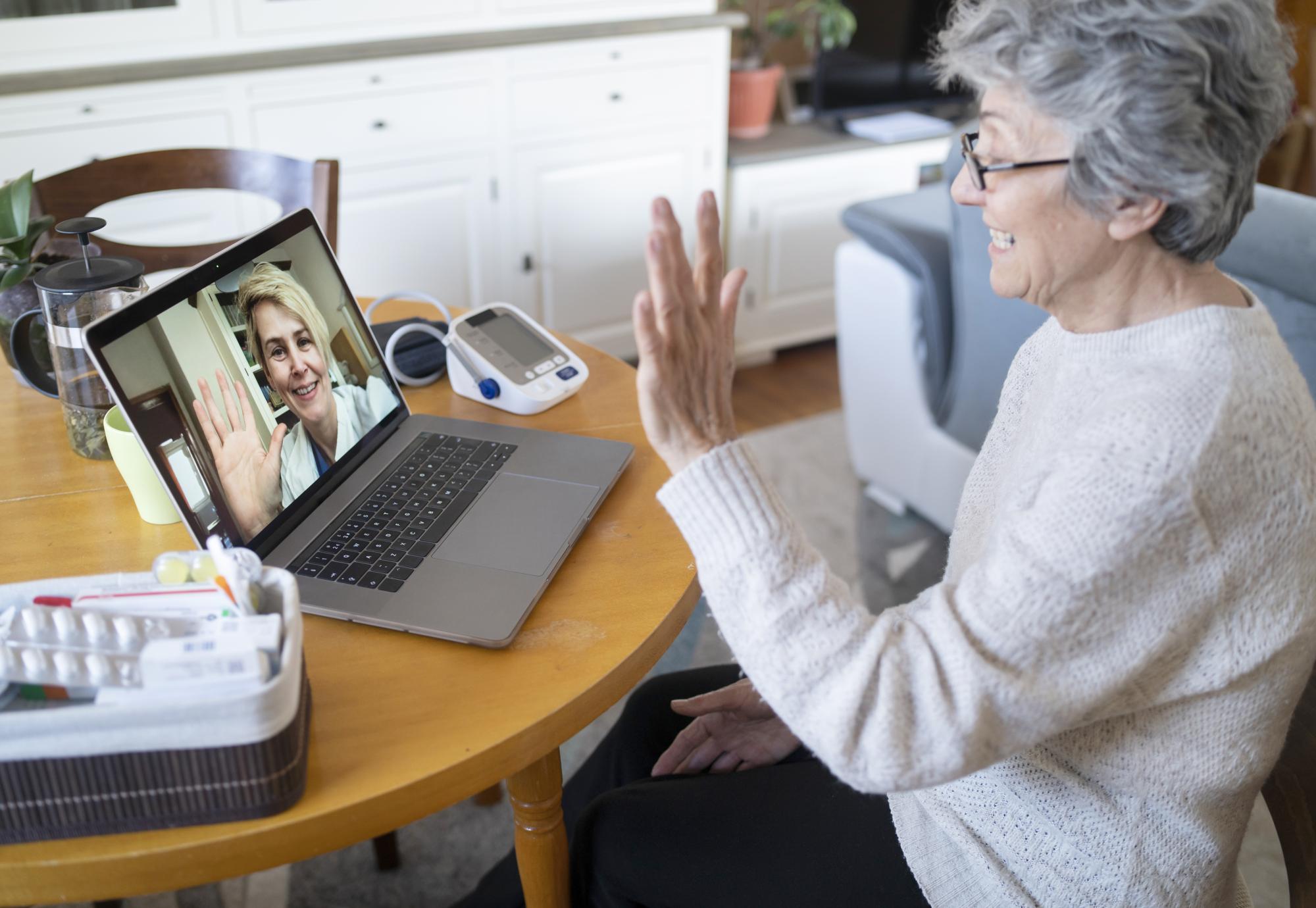The pandemic has seen the rise in use of online and digital platforms within the healthcare system. From online consultations to outpatient appointments, it is estimated that nearly 300,000 hours’ worth of travel time for patients has been saved within the past year.
Amongst the many pros of remote patient care, concerns about digital access for some patients, especially the elderly who may not have internet access is something professionals are still very aware of.
"This isn’t a one size fits all"
Lisa Hollins, Director of Innovation Delivery, NHSX
Catherine Dale, Programme Director for Patient Safety and Experience, Health Innovation Network said, ‘[we have to be] understanding of some of the restrictions people may have, let’s face it there’s so much in the world that people are being disadvantaged from.’
‘If you allow people access and if they’re quite remote from where their healthcare is normally positioned then it is fantastic that they can access that healthcare.’
Lisa Hollins, Director of Innovation Delivery, NHSX added that ‘We have to ensure there is the choice for those people who want in patient care and make sure people can come into hospital’
‘Fifty-five percent of patients would prefer not to be in hospital, before the pandemic people would not be able to get a seat in the waiting area whilst waiting for their appointment, so [for them] it’s easier’
For both patients and practioners it is important that there is trust and confidence when it comes to using digital services to provide care.
Lisa Hollins added that patient’s introduction into remote care ‘is really important’ and that ‘people are [made to feel] comfortable with the different types of care they are receiving.
Digitalisation of some aspect of the healthcare system can minimise the negatives we associate with hospitals and healthcare professionals as ‘there can be a [real] scariness behind going into hospitals’ according to Alexia Pellowe, Clinical Lead, Remote Health Monitoring, NHS Ayrshire & Arran (NHS Scotland).
Remote patient care has the advantage of allowing those with long term conditions to take control of their treatment and have a better understanding of the care they are receiving.
During the National Health Executive Virtual Event on Digital Healthcare, Lisa Hollins announced, ‘we’re doing further work at the moment with people who have long term conditions and are fragile,’ but exclaims that ‘this isn’t a one size fits all’ and it is pivotal that no one is left behind.
‘‘[We’re] working hard to include everybody, put patients at the centre and give them all the tools to manage their condition’.
‘We’re in a testing phase at the moment but we’re trying to avoid bouncing round the whole healthcare system but we’re trying to combine that with the digital aspect, so we don’t have to bring them in to hospital as often.’



















